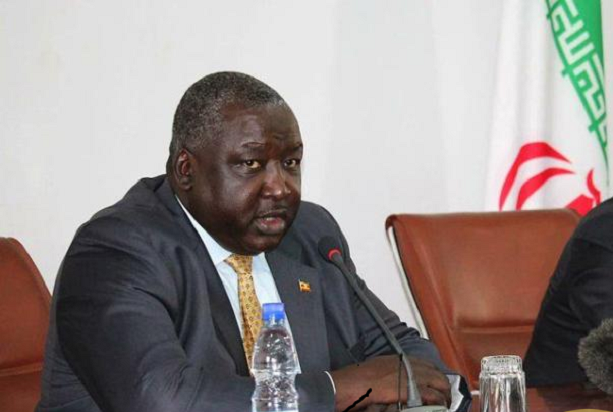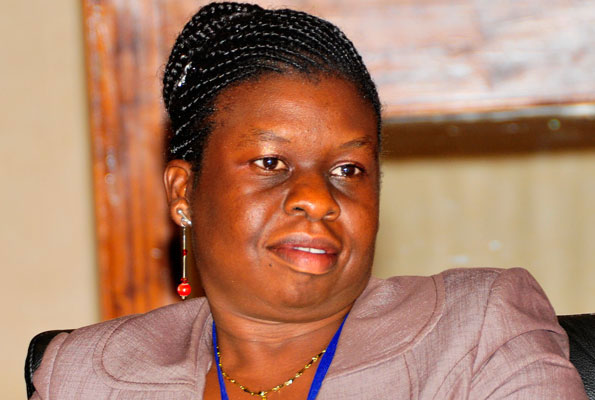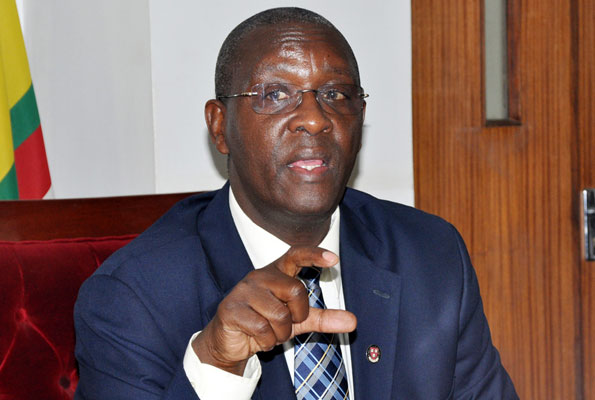State Minister for Foreign Affairs Okello Oryem
There was a heated exchange in the Foreign Affairs Committee of parliament on Monday when Muwada Nkunyingi, the Shadow Minister for Foreign Affairs, questioned State Minister for International Cooperation, Henry Okello Oryem, regarding Uganda’s recent entry into the BRICS bloc without parliamentary approval.
Oryem explained that Uganda’s decision to align with BRICS — a bloc comprising Brazil, Russia, India, China, and South Africa — was driven by the need to protect the country from unilateral sanctions imposed by the United States and the European Union. He argued that these sanctions, often enacted without United Nations resolutions, threatened Uganda’s sovereignty and economic stability.
“The United States and European Union expect other nations to abide by their sanctions, even when those sanctions disregard international practices. Uganda cannot simply stand by and ignore these changes in the world order,” Oryem stated.
In response to Nkunyingi’s questions about the lack of parliamentary approval for BRICS membership, Oryem defended the decision, stating that similar international commitments had historically not required parliamentary consent. “This matter was discussed in Cabinet, and approved, and directives were issued by the President to formalize Uganda’s membership. I don’t think it required approval from Parliament,” he said.
Oryem also clarified that Uganda’s membership in BRICS does not impose immediate financial obligations. Nkunyingi, however, criticized the government for bypassing parliamentary oversight, stating, “Instead of adhering to the rule of law and democratic governance, Uganda wants to hide under BRICS.”
He raised concerns over salary discrepancies within the Foreign Affairs Ministry, particularly with Ambassador Nsambu Alintuma, who reportedly earns as much as a State Minister. Oryem attributed this to directives from President Museveni, adding that many ambassadors were political appointees beyond the ministry’s control.
The committee also discussed the stagnation of long-serving Foreign Service staff, some of whom have not been promoted for years. Oryem admitted that promotions were dependent on presidential decisions, which left the ministry with limited authority in this regard. “Some of these staff feel too big to adhere to the ministry’s guidance and await direct instructions from the President,” Oryem revealed.
Nkunyingi further criticized the absence of substantive ambassadors in key missions, including those in Nigeria, Canada, Kenya, Iran, and the Democratic Republic of Congo. Despite significant budget allocations, these embassies reportedly lack administrative and political accountability.
Oryem suggested that such questions be directed to President Museveni, prompting Nkunyingi to demand the minister’s resignation if he could no longer manage the ministry’s operations effectively. “It is the minister’s responsibility to report to Parliament under the Rules of Procedure,” Nkunyingi stressed.
Nkunyingi also urged the ministry to prioritize the welfare of Ugandan migrant workers and distressed nationals abroad. He called for the deployment of labor attachés and the expansion of consular services to better address the growing needs of citizens overseas. In a related development, Oryem defended the Bank of Uganda’s decision to purchase gold from local artisans to establish domestic gold reserves.
He argued that this initiative was vital to protecting Uganda’s assets from potential sanctions by the United States. “We are now studying how to create gold reserves domestically. With about US$4 billion in foreign reserves, Uganda risks losing its assets if sanctions are imposed. This move is a safeguard against such threats,” Oryem explained.
-URN





